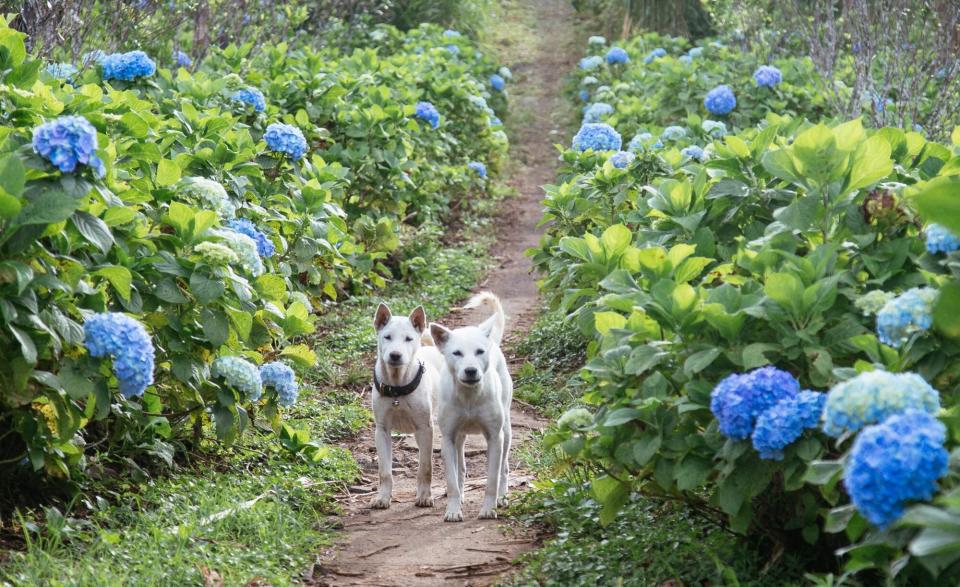Are Hydrangeas Poisonous to Dogs?
Southern gardeners love the look of hydrangeas in the spring and summer. The showy large balls of dusty pink, cornflower blue, white, or purple flowers that bloom from May through October are the perfect backdrop of a well-manicured yard. But did you know these beautiful shrubs were poisonous to your pup?
Hydrangeas are Toxic to Dogs
"Dogs will become poisoned from eating any part of the hydrangea plant," says Dr. Michelle Burch, a vet at Safehounds Pet Insurance. "The toxic component of the hydrangea plant is a cyanogenic glycoside." The leaves, buds, flowers, and bark all contain the toxin so if your dog munches any part of your hydrangeas, he could get sick.
What are the Symptoms of Hydrangea Poisoning?
The most common symptoms of hydrangea poisoning in dogs include:
"In rare cases and with large amounts of ingestion, a dog may develop an increased heart rate and increase in body temperature," says Dr. Burch.
What Should You Do if You Suspect Hydrangea Poisoning?
Thankfully, cases of hydrangea poisoning are not usually severe, but you dog will typically need supportive care to recover. Owners should contact their veterinarian for advice and schedule an appointment. Supportive care can include fluid therapy, anti-nausea medication, anti-diarrheal medicine, and pain control.
"If your veterinarian is unavailable, I recommend contacting either the ASPCA poison control hotline at (888) 426-4435 or the Pet Poison Helpline at (855) 764-7661," stresses Dr. Burch.
She says if you're watching and waiting after your dog ingests a minor amount of the hydrangea plant to see if he has any ill effects of intestinal distress, feeding a bland diet of cooked chicken, white rice, or a boiled white potato and plain yogurt until you get further instructions from your vet can be helpful.

Getty Images
Keep Your Dog Away from Hydrangeas Unattended
If your dog is prone to chewing on foliage or flowers, build a decorative barrier around your hydrangeas or plant them in areas that your pup doesn't frequent unattended like the side or front yard. This will help prevent him from munching on these poisonous flowers.

